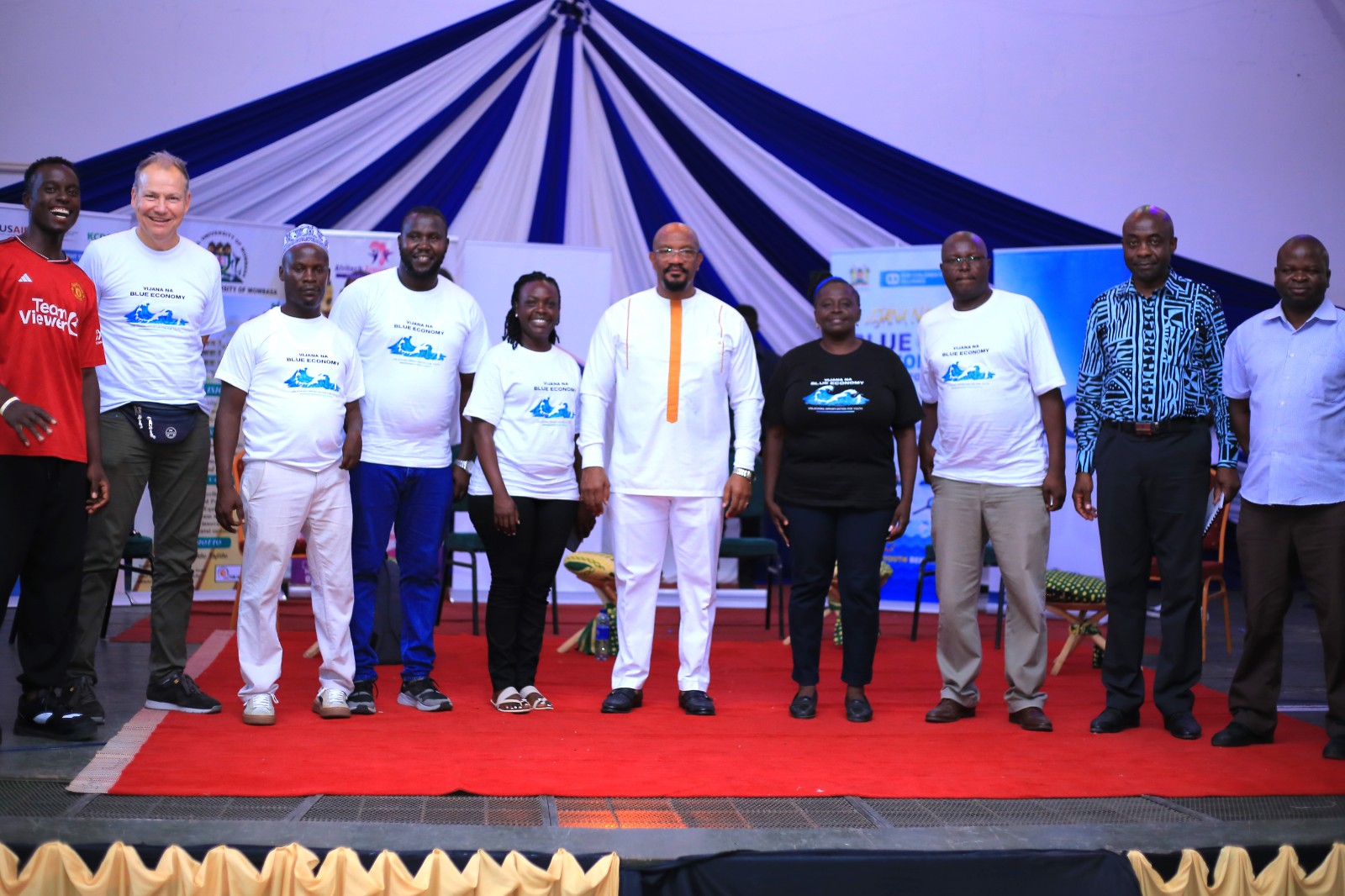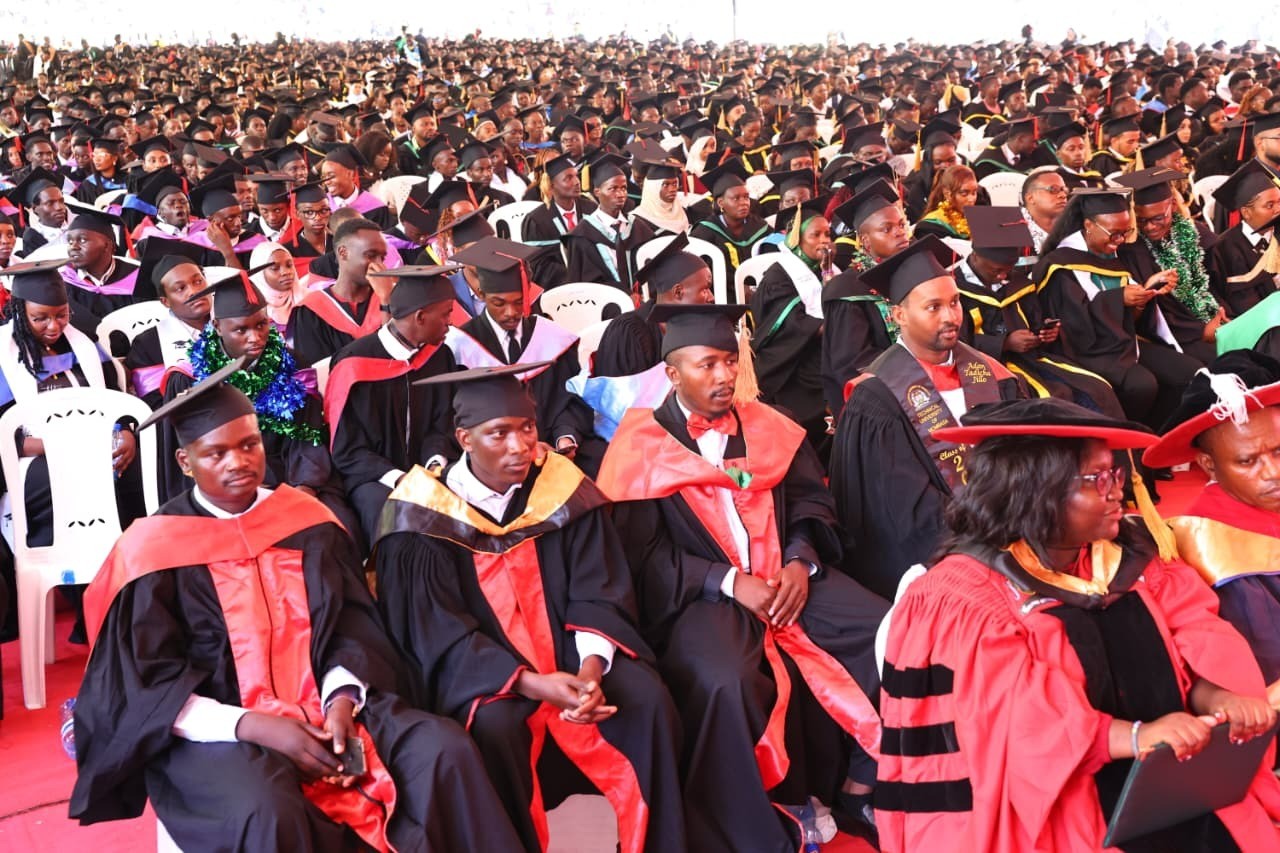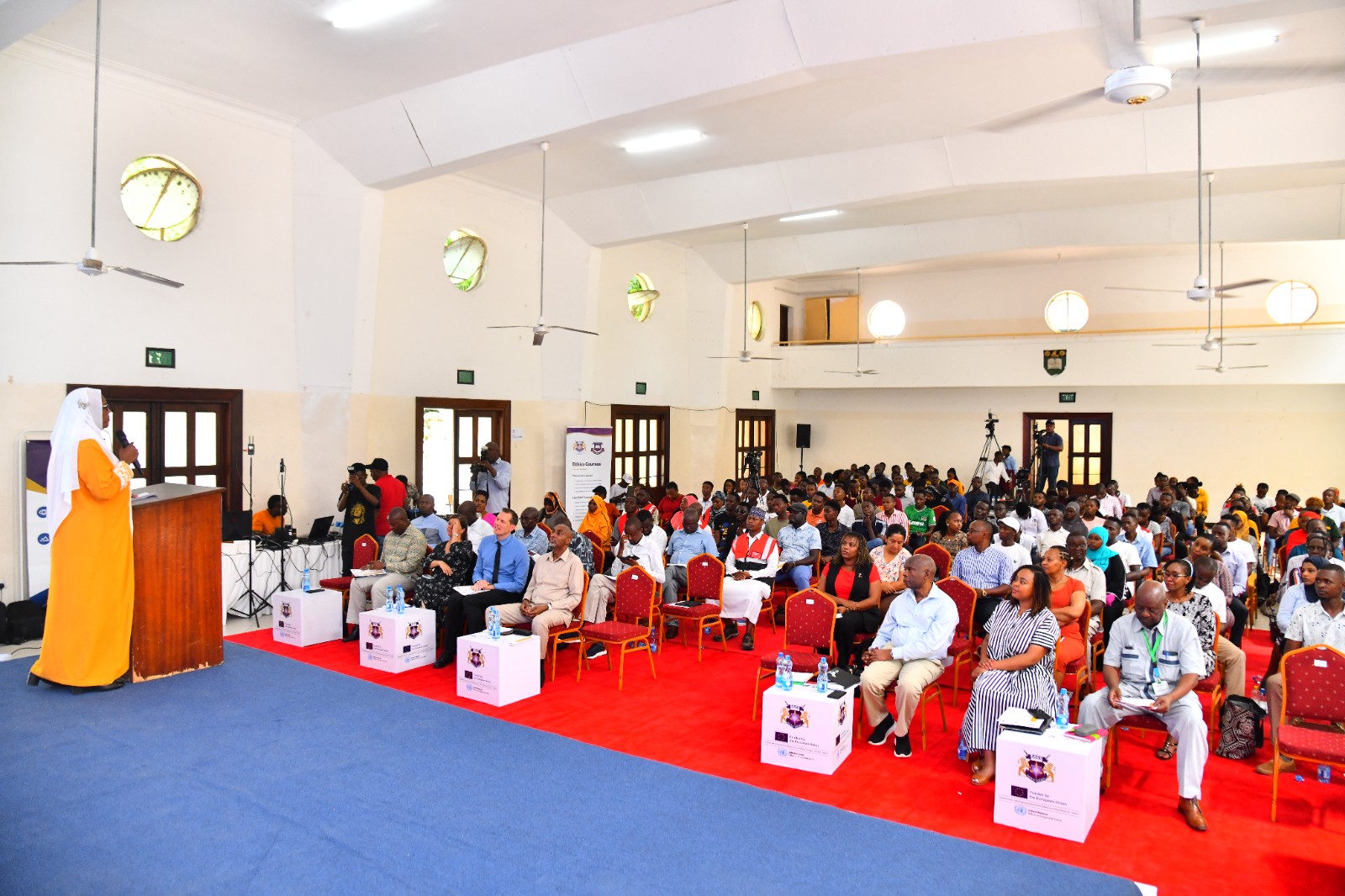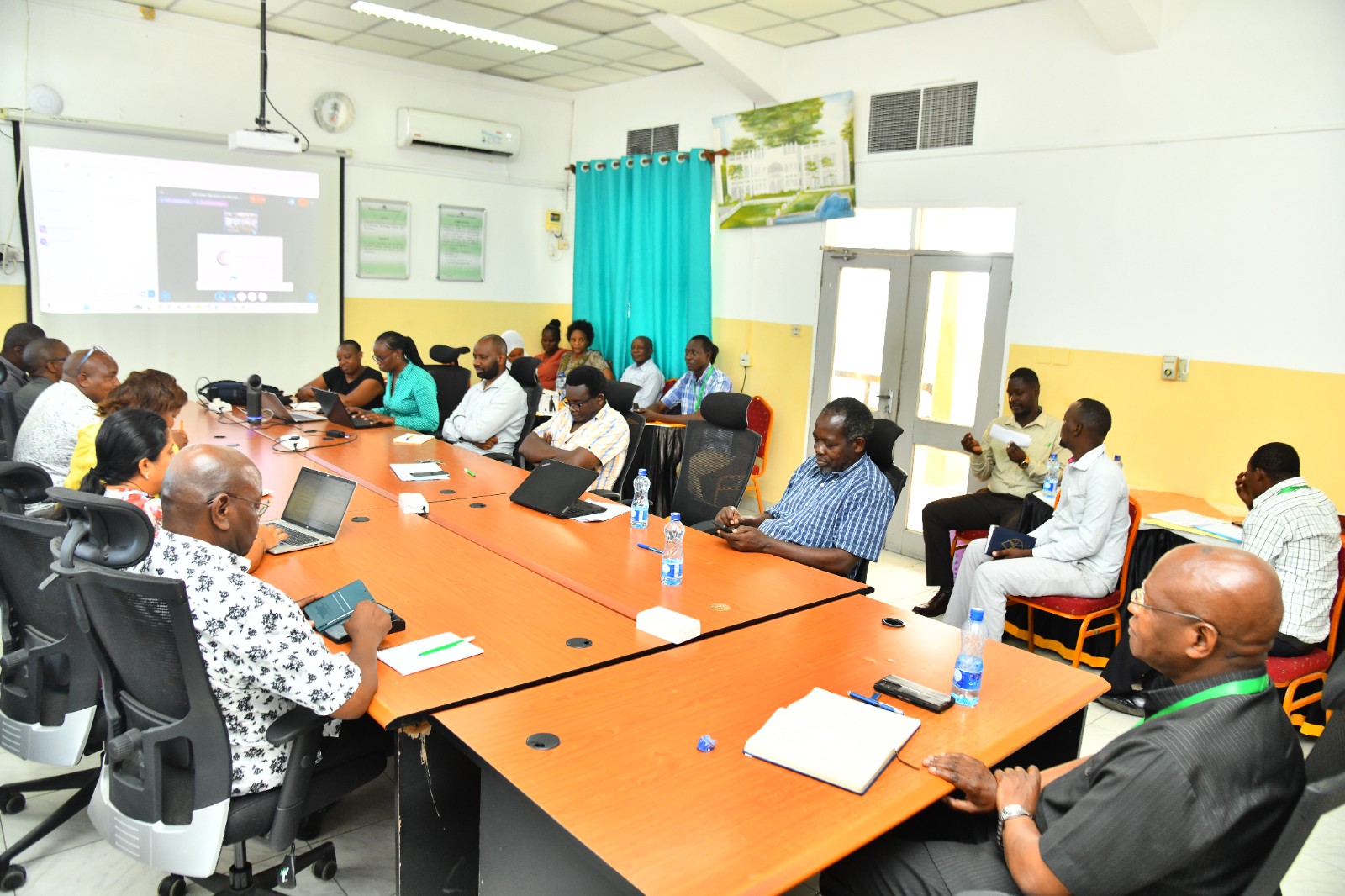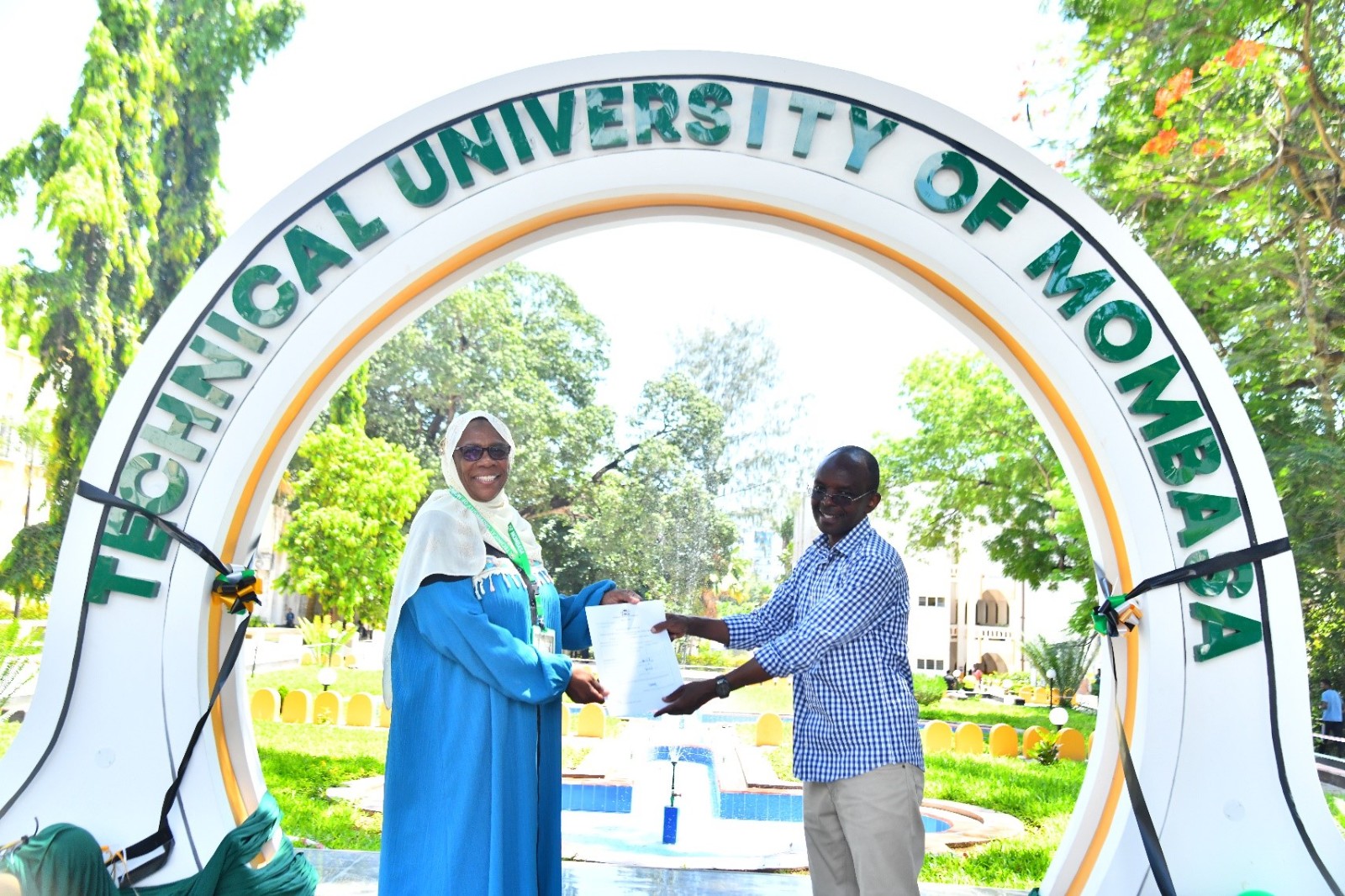On November 27th and 28th, over 450 youth gathered at the Technical University of Mombasa for the 'Vijana na Blue Economy' forum. The event brought together leaders, experts, influencers, and young people to share valuable insights on harnessing the potential of the Blue Economy. This forum was made possible through the collaboration of various key partners, including the State Department for Youth and Creative Economy, SOS Children’s Villages Kenya, the County Government of Mombasa, Sote Hub, Amurt, CAPYEI, and OCI Hub, among others, all of whom played a crucial role in organizing and supporting the event.
Professor Laila Abubakar, Vice Chancellor of the Technical University of Mombasa (TUM), officially opened the event. She highlighted the dual responsibility of seizing economic opportunities from marine resources while ensuring their preservation for future generations. She encouraged empowering youth to explore industries like ornamental fisheries, emphasizing the need for sustainable practices to protect ocean ecosystems.
Mr Walter S. Odhiambo, National Director of SOS Children’s Villages in Kenya, underscored the importance of community involvement, supportive policies, and technological innovation in creating a thriving Blue Economy. He outlined the critical role young people play in driving this forward, stressing that they are central to unlocking the full potential of marine resources. Through programs like *Leave No Youth Behind*, SOS Children’s Villages continues to equip young people with the tools they need to succeed in the Blue Economy.
Mr. Hamisi Kurichwa, Chief Officer for Youth, Gender, Sports, and Social Services, pointed out that only 20% of the Blue Economy’s potential has been tapped so far. He emphasized the importance of cooperative movements and collective resource pooling to enable youth to seize emerging opportunities fully. Kurichwa also announced plans to establish fish markets in local communities to support livelihoods and foster economic growth.
Representing the Principal Secretary, Mr Benard Kibisu, the Director of Youth Affairs and Creative Economy, announced the launch of the National Youth Opportunities Towards Advancement (NYOTA) program. Backed by a World Bank funding initiative of KES 2 billion, NYOTA aims to unlock the potential of the Blue Economy by providing skills development and fostering strategic partnerships.
Ms Sharon Mbusiro, a representative from the County Commissioner’s office, discussed reintroducing the Skills Mtaani program, which aims to empower youth with a diverse range of employable and life skills. She also mentioned a new course in boat crafting, developed in collaboration with Mtongwe Vocational and Technical College. This initiative is designed to equip youth with skills relevant to the Blue Economy, with the county covering 60% of tuition fees. Graduates of the program will also receive start-up kits to help them launch their careers and contribute to the region’s economic development.
Ann Kamau, an Advocate of the High Court, encouraged young entrepreneurs to explore opportunities within the Blue Economy while ensuring that their ventures comply with legal frameworks and regulations. Her message highlighted the importance of entrepreneurship in a rapidly evolving sector and the need to navigate legal complexities effectively.
A diverse group of speakers from various hubs, companies, and organizations, including faculty from TUM, shared their expertise and wisdom throughout the two-day event. Several of them emphasized that the Blue Economy is not limited to fishing or maritime industries; it also encompasses sectors such as boat building, fish waste utilization, and sustainable tourism. With a strategic focus on innovation, skills training, and policy development, Kenya is poised to realize the full potential of its Blue Economy. The partnership between the government, institutions, and local communities—supported by key partners and stakeholders—will be crucial in making this vision a reality.
The forum featured a series of insightful panel discussions. One panel focused on "Promoting Entrepreneurship in the Blue Economy among Youth," exploring how young people can harness the sector's potential to create businesses and opportunities. Another panel discussed "Skilling Youth for Blue Economy Opportunities," emphasizing the need for specialized training to equip young people with the skills necessary for success. A third panel, titled "Success Stories from Youth in the Blue Economy Sector & Challenges," provided real-life experiences from young entrepreneurs in the sector, highlighting both their successes and the obstacles they faced.
Additionally, there was a panel discussion on "Youth as Seafarers," which emphasized the vital role that young people can play in the maritime industry. This discussion focused on creating pathways for youth to enter the seafaring profession, highlighting potential employment opportunities in the global maritime sector and the essential skills needed for success. The panel also explored ways to enhance access to training and certification, particularly for important courses such as the Standards of Training, Certification, and Watchkeeping for Seafarers (STCW), as well as the benefits of learning foreign languages. They discussed the importance of acquiring credentials from recognized authorities like the Kenya Maritime Authority and the available employment opportunities for young people interested in seafaring careers.
The speakers shared similar views on the importance of acquiring both technical and life skills, volunteering, building a personal brand, networking, and using social media for self-promotion. They provided essential financial tips and encouraged participation in empowerment programs such as 'Ready to Work' by ABSA Bank, as well as utilizing beneficial spaces like Swahilipot and Kwa Karisa Maitha in Shanzu. Additionally, the youth were urged to identify gaps in society and seek innovative solutions to address these challenges. A notable example shared during the discussion was Dr. Mariam Swaleh’s analysis of a water shortage problem in Mombasa, despite its proximity to the ocean.
These discussions provided participants with practical advice and inspiration, highlighting the tremendous opportunities for youth in the Blue Economy and the support needed to overcome challenges.
As the Blue Economy event for youth drew to a close, Hon. Kenneth Ambani, the CECM for Public Service, Administration, Youth, Gender, Sports, and Social Services, emphasized the collective responsibility of all generations to guide and support the younger ones. He stressed the importance of structured support systems, such as youth hubs, which are vital for nurturing the potential of young people and helping them thrive in today’s rapidly evolving world.
In his address, Hon. Ambani acknowledged that as parents and mentors, society has sometimes fallen short, but he emphasized that each individual’s role remains crucial in shaping a better future. He encouraged young people to seize the opportunities before them, especially in the Blue Economy, which offers immense potential for sustainable livelihoods. He further highlighted the importance of entrepreneurship, urging youth to examine their immediate environment and identify ways to create income-generating opportunities within it. "Look at your surroundings and find something you can do that will earn you an income," he said, pointing out that the Blue Economy is full of untapped opportunities for those willing to take action.
He concluded by urging the youth to walk into these hubs, identify their niche, and pursue it with determination and focus, ensuring they are well-positioned to contribute meaningfully to both the blue economy and the future of their communities. The message was clear: the youth are not only the leaders of tomorrow but the innovators and changemakers of today.

